“True connoisseurs do not drink wine. tasted secrets”. Salvador Dalì

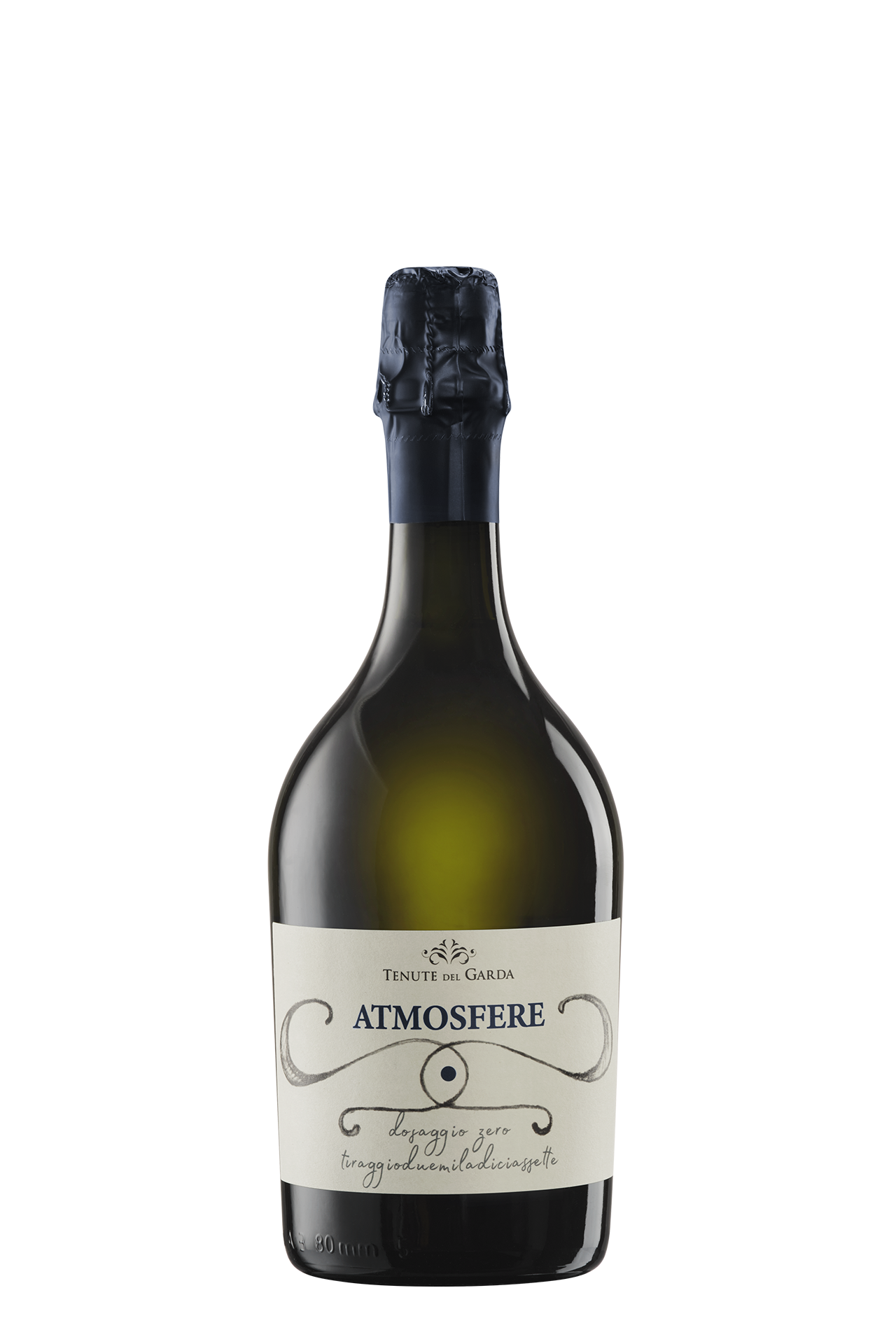
Atmosfere
Atmosfere is an elegant Metodo Classico that lives our continuous search for the expression of Groppello. It shares the same character as Sotto Sopra. Crisp notes of biscuits, elderflower and acacia make the wine overwhelming. To be discovered after 42 months on the lees, the ideal time to enhance the white pepper notes typical of Groppello.
Technical data: White Sparkling
Grape varieties: Groppello
Vineyard area: Barcuzzi
Vineyard area: The soil is a clayey limestone of morainic origin, with a fair amount of inert material, which is ideal for our vines.
Vine training system: Guyot
Planting density: 2.40 x 0.80
Planting density: Plants/ha 5200
Age of vines: 25 years
Yield per hectare: 90 quintals
Harvest: manual
Vinification: The whole white clusters are softly pressed
Alcoholic fermentation: Post spontaneous decantation, must ferments at 15°C for 12 days
Classic method: Refermentation in bottle minimum 42 months
Alcohol content: 12%
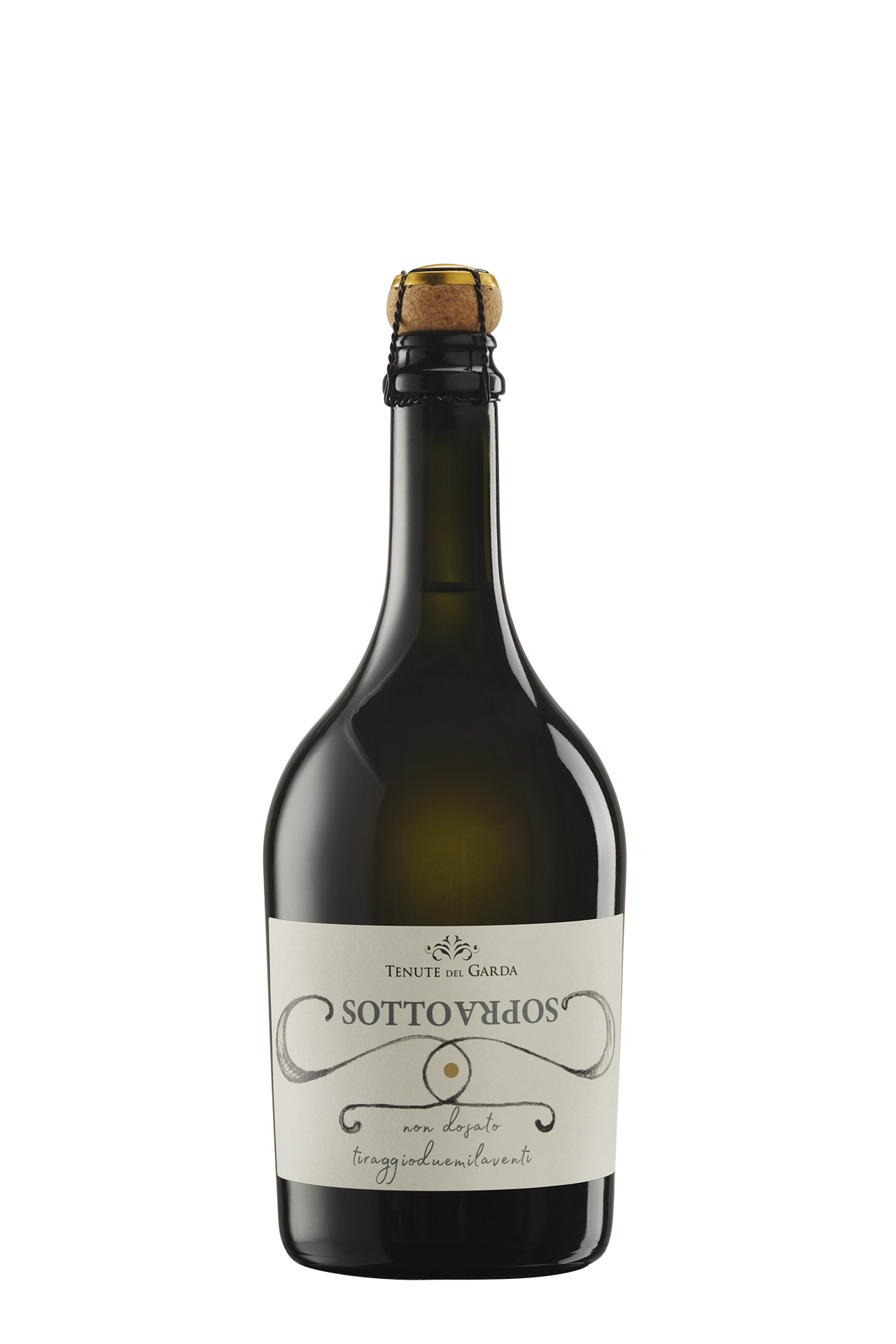
SottoSopra
A vision of Groppello vinified in white that evolves, narrates and expresses itself in Metodo Classico. Sotto Sopra is a turbulent wine, sold after 36 months on the lees. It is a dialog with the wine and the discovery of its evolution and complexity. The yeasts of the second fermentation are visible; they bring aromas of toast, citrus and evolved notes. A wine of great passion.
Technical data: White Sparkling
Grape varieties: Groppello
Vineyard area: Barcuzzi
Vineyard area: The soil is a clayey limestone of morainic origin, with a fair amount of inert material, which is ideal for our vines.
Vine training system: Guyot
Planting density: 2.40 x 0.80
Planting density: Plants/ha 5200
Age of vines: 20 years
Yield per hectare: 90 quintals
Harvest: Manual
Vinification: The whole white clusters are softly pressed
Alcoholic fermentation: Post spontaneous decantation, must ferments at 15°C for 12 days
Classic method: Refermentation in bottle minimum 36 months, without final expulsion of yeasts
Alcohol content: 12%
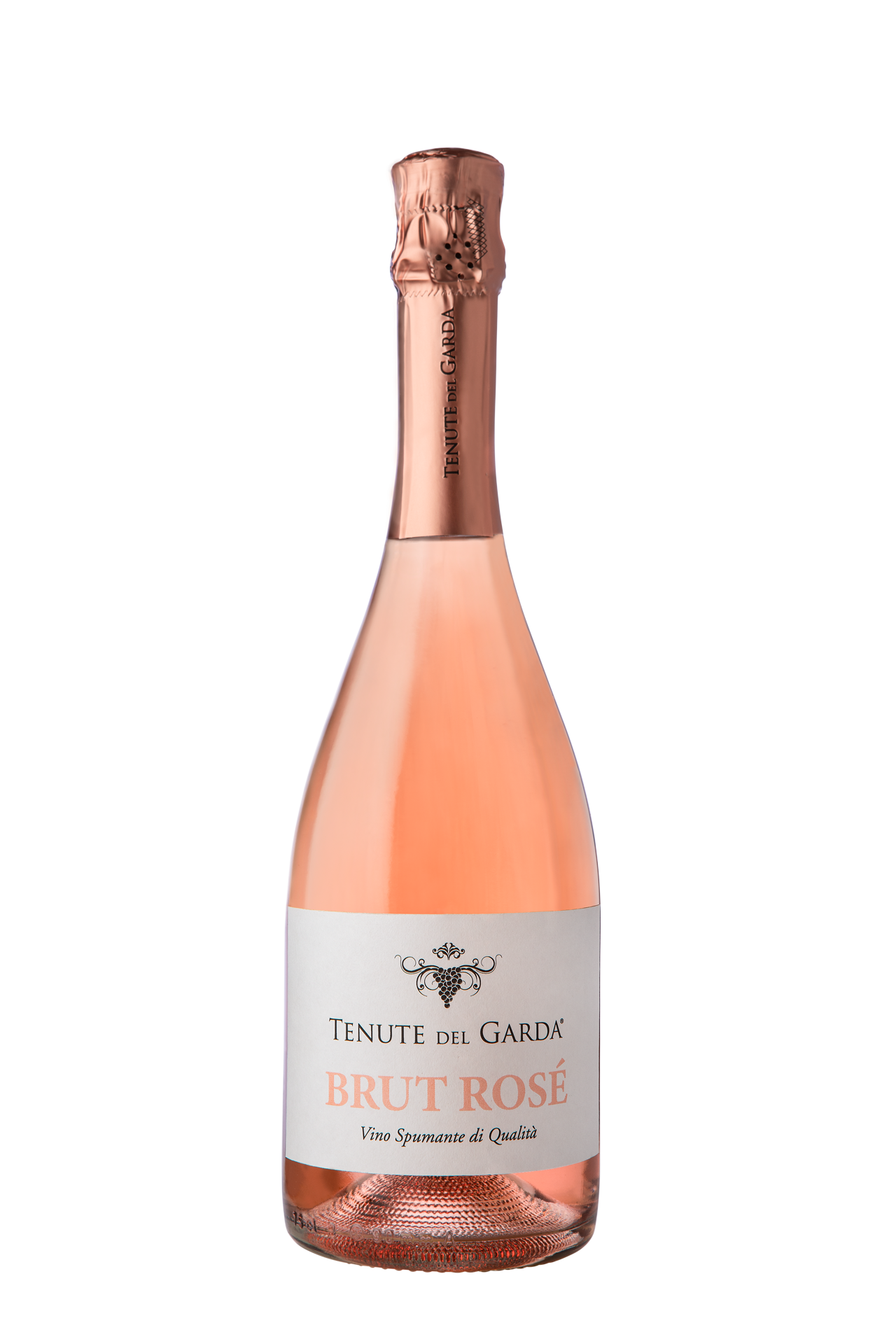
Brut Rosè
Refermented in closed tanks for at least ninety days using the Charmat method, this rosé wine suits every moment of the day, thanks to its lively perlage and the delicate notes of wild berries and flowers. Its soft and velvety taste, together with the spring fragrance, offer a joyful and extremely satisfying drinking experience.
Grape varieties:Groppello, Marzemino, Sangiovese e Barbera
Vineyard area: Barcuzzi
Vineyard area: The soil is a clayey limestone of morainic origin, with a fair amount of inert material, which is ideal for our vines.
Vine training system: Guyot
Planting density: 2.40 x 0.80
Planting density: Plants/ha 5200
Age of vines: 10 years
Yield per hectare: 90 quintals
Harvest: Manual
Vinification: Short prefermentative cold maceration
Alcoholic fermentation: Post spontaneous decantation, must ferments at 15°C for 12 days
Classic method:The Martinotti method allows the wine to stay on the lees for at least 90 days.
Alcohol content: 13%
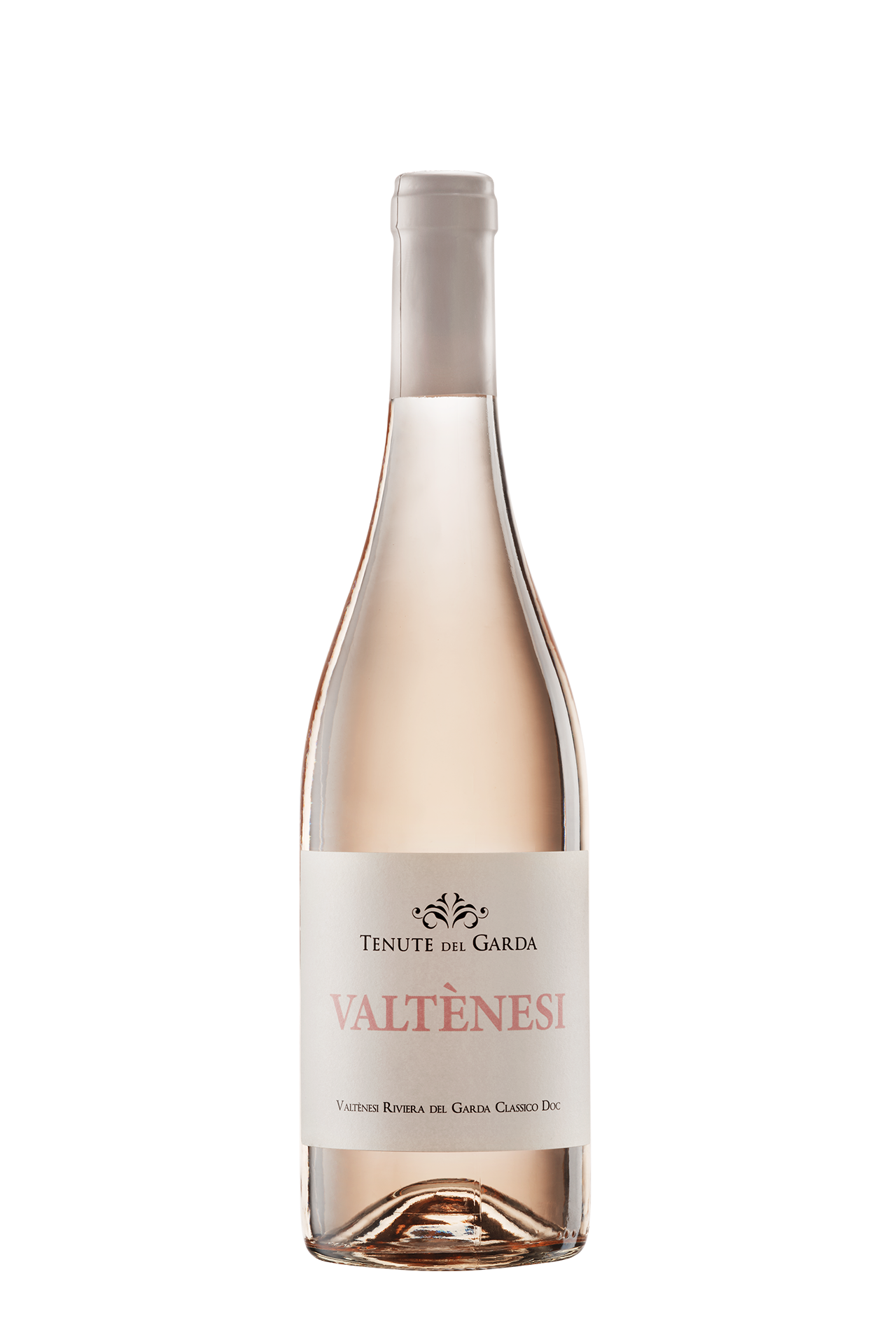
Valtènesi
Valtènesi Riviera del Garda Classico doc
Valtènesi accompanies moments of conviviality with freshness and elegance, using the color of sunsets over the lake. It encloses mineral fragments in a tasty and harmonious goblet. It allows you to taste a unique microclimate through its native grape variety, according to the vision of Pompeo Molmenti. Daily enjoyable in its youth and fascinating during its evolution
Grape varieties: Groppello
Vineyard area: Barcuzzi
Vineyard area: The soil is a clayey limestone of morainic origin, with a fair amount of inert material, which is ideal for our vines.
Vine training system: Guyot
Planting density: 2.40 x 0.80
Planting density: Plants/ha 5200
Age of vines: 15 years
Yield per hectare: 90 quintals
Harvest: Manual
Vinification: Gentle cold pressing of grapes
Alcoholic fermentation: Post spontaneous decantation, must ferments at 16°C for 12 days
Alcohol content: 12.5%
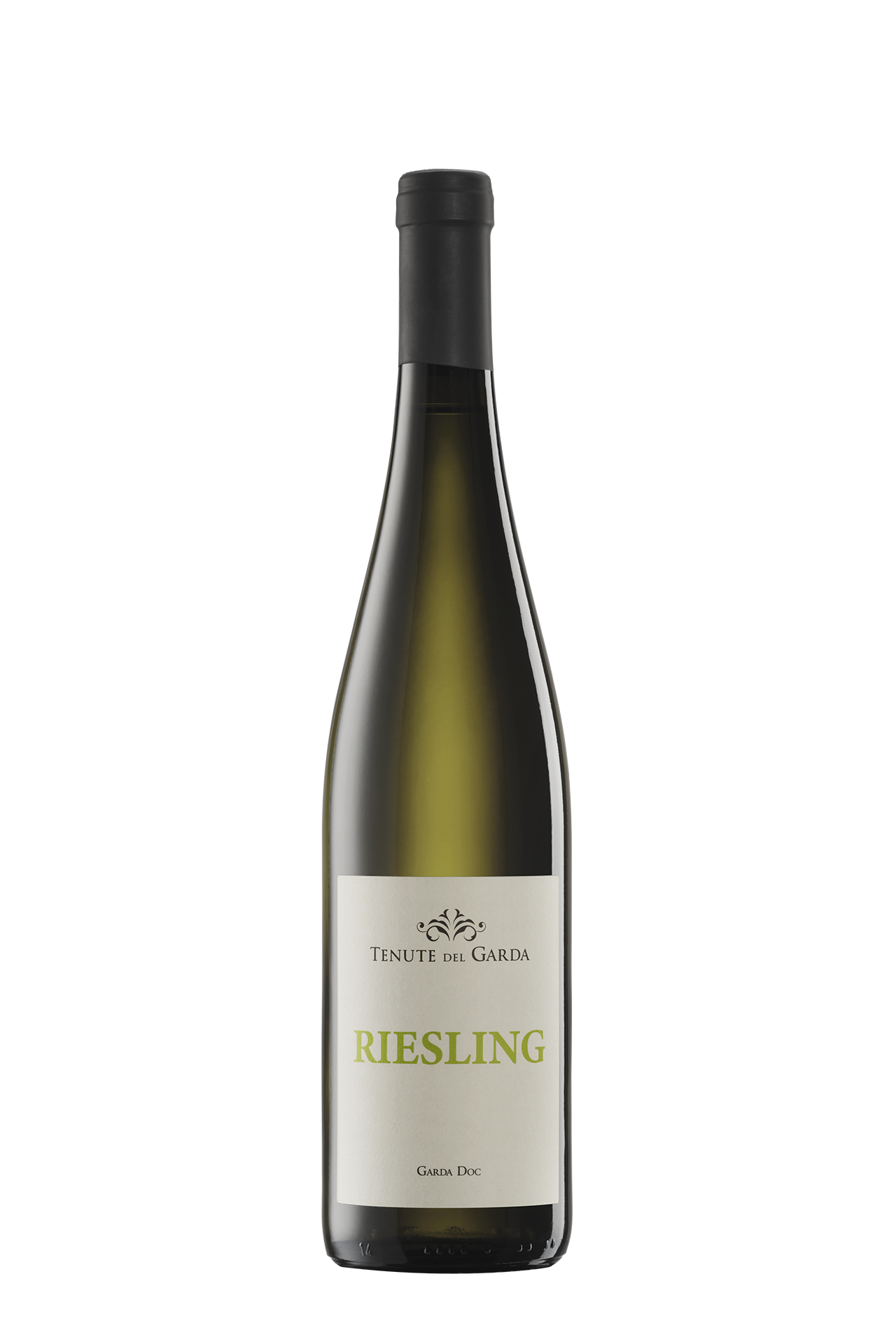
Riesling
Riesling can express itself with fascinating facets. It combines the assertive and dynamic character of the Riesling Renano with the more subdued and graceful character of the Riesling Italico, creating a harmony of contrasting notes. It symbolizes the commitment to preserve the selected varieties and to express two different characters of the same story.
Technical data: White Still
Grape varieties: Riesling Renano, Riesling Italico
Vineyard area: Campagnoli
Vineyard area: The soil is a clayey limestone of morainic origin, with a fair amount of inert material, which is ideal for our vines.
Vine training system: Guyot
Planting density: 2.40 x 0.80
Planting density: Plants/ha 5200
Age of vines: 8 years
Yield per hectare: 90 quintals
Harvest: Manual
Vinification: The whole white clusters are directly softly pressed, without being destemmed and smashed
Alcoholic fermentation: Post spontaneous decantation, must ferments at 15°C for 12 days
Alcohol content: 12.5%
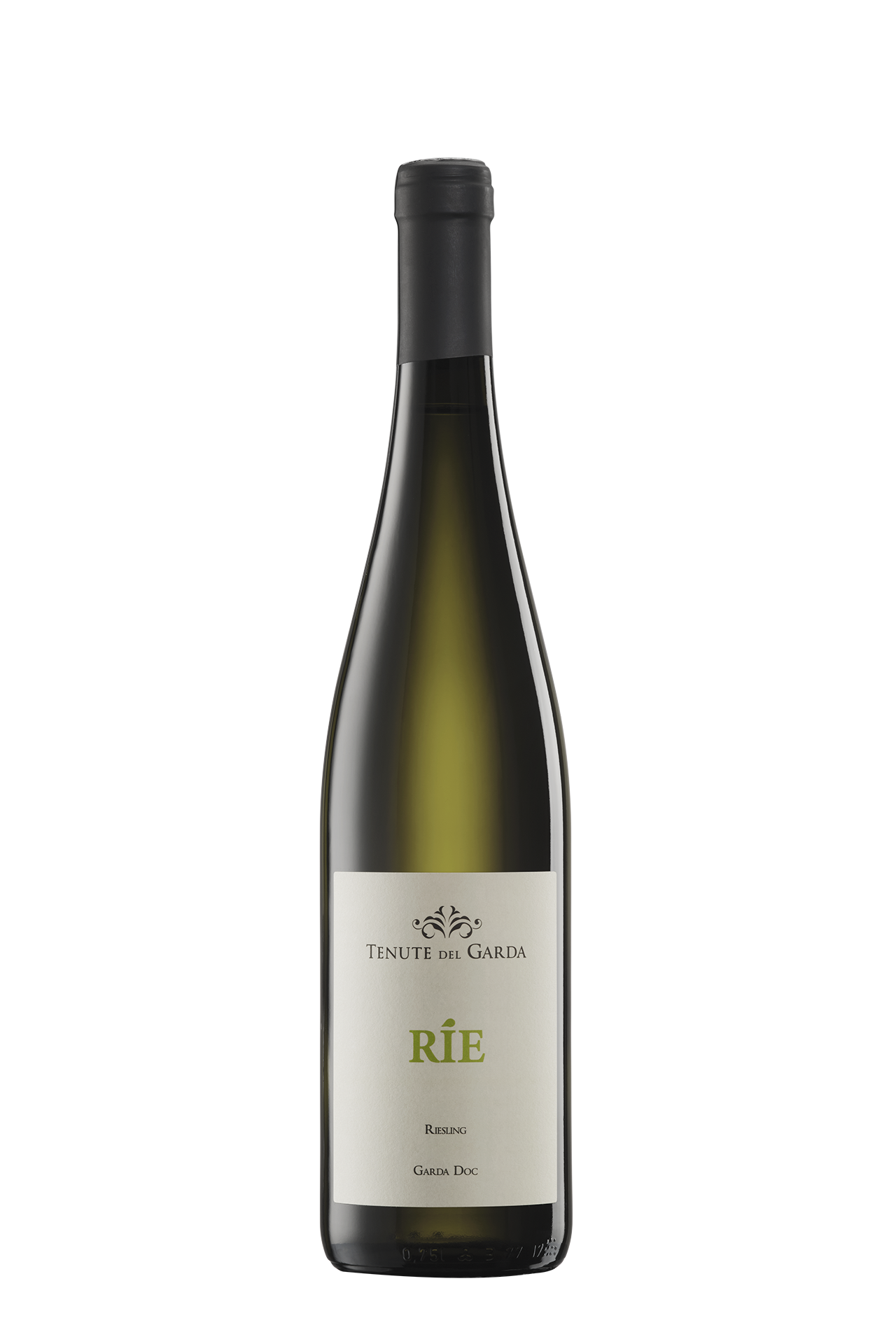
Rìe
Arrival has always been discovery, joy, welcome. The shores represent a safe harbor, a home. “Rìe” in the local dialect means both, with all that goes with it.
This Riesling represents exactly that: the homecoming, the security and the joy of a new discovery. A historic vine, welcomed by a friendly climate, by a winemaking art handed down through generations, by the excitement of an adventure and a discovery.
A wine that wants to be drunk, but that winks at medium and long aging, that guards the varietal, clear and precise, but also a fine and light drinkability.
Rìe interprets the arrival on the shores of Lake Garda in a modern version, with great respect for the grape, the place and for those who will finally drink it.
Grape varieties: Riesling Renano
Vineyard area: Campagnoli
Vineyard area: The soil is a clayey limestone of morainic origin, with a fair amount of inert material, which is ideal for our vines.
Vine training system: Guyot
Planting density: 2.40 x 0.80
Planting density: Plants/ha 5200
Age of vines: 10 years
Yield per hectare: 60 quintals
Harvest: Manual
Vinification: After careful selection in the vineyard, the destemmed and uncrushed grapes are softly pressed.
Alcoholic fermentation: Post spontaneous decantation, must ferments at 15°C for 12 days
Alcohol content: 11.5%

Lucone
Riviera del Garda Classico Groppello D.O.P.
Lucone is a walk in the woods, among the scents of red fruits and herbaceous aromas. It is intense and elegant, combining natural freshness and the softness of the terroir in a crescendo of fascinating suggestions.
Technical data: Red Still
Grape varieties: Groppello, Marzemino, Sangiovese and Barbera
Vineyard area: Campagnoli
Vineyard area: The soil is a clayey limestone of morainic origin, with a fair amount of inert material, which is ideal for our vines.
Vine training system: Guyot
Planting density: 2.40 x 0.80
Planting density: Plants/ha 5200
Age of vines: 12 and 15 years
Yield per hectare: 90 quintals
Harvest: Manual
Vinification: Destemmed grapes are not crushed in order to respect the maximum integrity of the skins. During the alcoholic fermentation, the must is pumped over several times to promote the extraction of aromas, color and tannins from the marc. After maceration, which varies from 7 to 10 days, the wine is racked. During the alcoholic fermentation and maceration in the winemaking process, we use a patented technique of winemaking with stems. This technique allows us to manage the stems in such a way that they are of value for color stability and flavor impact. After racking, the wine is decanted and undergoes malolactic fermentation. Malolactic fermentation lasts about 15 days at a temperature of 20°C.
Alcoholic fermentation: Lucone is aged for two years in concrete vats and 20% in 500-liter French oak barrels for one year; it is bottled for at least 12 months before being released for consumption.
Alcohol content: 12.5%

Vista Lago
A pure expression of the Groppello grape, it comes from the vineyards closest to the lake. Each grape is selected, dried in small boxes, crushed and left to ferment slowly. The nuances imparted by French oak enhance the expression of a powerful, elegant and vertical wine.
Grape varieties: Groppello
Vineyard area: Barcuzzi
Vineyard area: The soil is a clayey limestone of morainic origin, with a fair amount of inert material, which is ideal for our vines.
Vine training system: Guyot
Planting density: 2.40 x 0.80
Planting density: Plants/ha 5200
Age of vines: 60 years
Yield per hectare: 40 quintals
Harvest:by hand in small boxes of up to 4 kg.
Drying: approximately 50 days
Vinification: The destemmed grapes are not crushed in order to respect the maximum integrity of the skins. During the alcoholic fermentation, the must is frequently pumped over to encourage the extraction of aromas, color and tannins from the marc. After maceration, which varies from 10 to 15 days, the wine is racked. The wine is then racked and undergoes malolactic fermentation. Malolactic fermentation lasts about 15 days at a temperature of 20°C.
Alcoholic fermentation: The wine is aged in oak barrels of 500 liters for at least 12 months and then in bottles for at least 24 months before being released for consumption.
Alcohol content: 14%
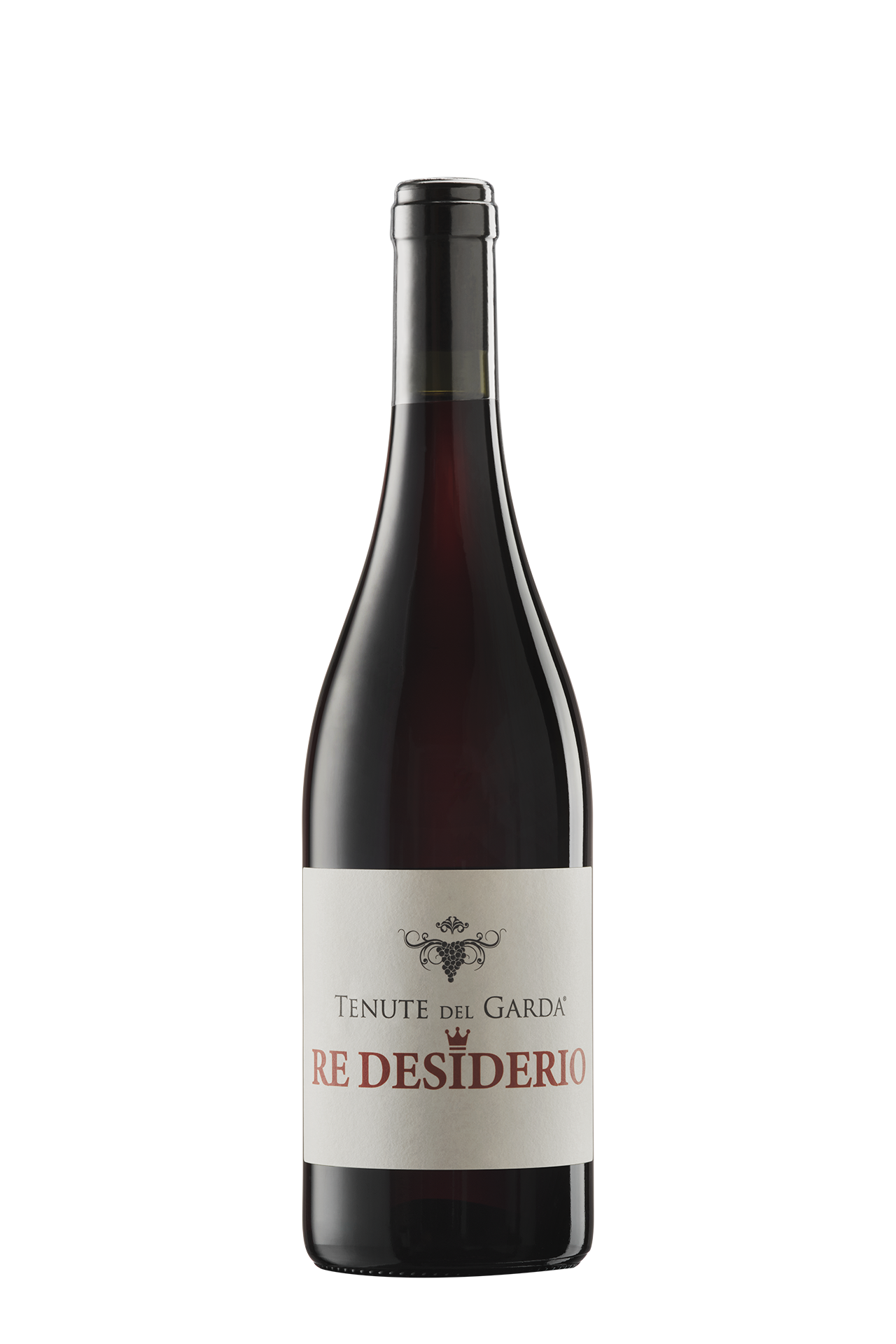
Re Desiderio
Noble, strong and courageous, it tells the story of Valtènesi through its character. It takes its name from King Desiderius, ruler of the Lombards and ancestor of our people. This wine is an achievement of this territory; it is the fruit of a long aging to consolidate its integrity.
Technical data: Red Still
Vineyard area: Barcuzzi
Vineyard area: The soil is a clayey limestone of morainic origin, with a fair amount of inert material, which is ideal for our vines.
Vine training system: Guyot
Planting density: 2.40 x 0.80
Planting density: Plants/ha 5200
Age of vines: from 25 to 40 years
Yield per hectare: 70 quintals
Harvest: manual
Vinification: The grapes are destemmed without crushing in order to respect the integrity of the skins. During the alcoholic fermentation, the must is frequently pumped over to encourage the extraction of aromas, color and tannins from the marc. After maceration, which varies from 12 to 15 days, the wine is racked. The wine is then racked and undergoes malolactic fermentation for about 15 days at a temperature of 20°C.
Alcoholic fermentation: Re Desiderio is aged in cement barrels and then in 225-liter wooden barrels. Before being released for consumption, it spends at least 24 months in the bottle.
Alcohol content: 13,5%

